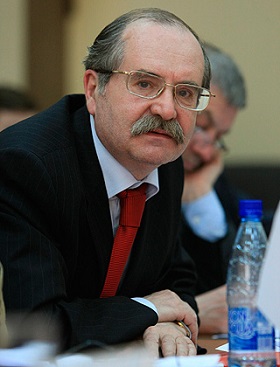Interview
A wave of anti-government protests has swept Caracas, the capital of Venezuela, over the last few months. We asked Director of the RAS Institute of Latin America and RIAC member Vladimir Davydov to share his insights on the situation in the country.
Interview
A wave of anti-government protests has swept Caracas, the capital of Venezuela, over the last few months. We asked Director of the RAS Institute of Latin America and RIAC member Vladimir Davydov to share his insights on the situation in the country.
Venezuela is facing a critical phase of development, and political antagonism in the country has intensified. The economy has proved incapable of meeting even the most essential needs. The consumer market is blighted by large deficits, which only worsens the crime situation. It is not surprising that the opposition stepped up its efforts, setting itself the goal of overthrowing the incumbent authorities.
President Nicolas Maduro’s administration is attempting to maneuver, but its actions lack the necessary consistency. It is held hostage to the model of increasing the state’s role in the economy, which leaves little chance for the negative trends in Venezuela’s economic life to be adequately addressed. I am concerned that the moment when compromise solutions could still be found has been missed.
An integration alliance of South American countries, UNASUR, is trying to help resolve the Venezuelan crisis. Negotiations are underway in Caracas, mediated by a number of foreign ministers from UNASUR member-states. Since these mediating efforts seem both serious and determined, it would be premature to assume that the situation has reached an impasse, but the opposition is not united on the issue of reaching a possible compromise with Nicolas Maduro.
Part of the opposition has demonstrated willingness to compromise, in contrast to the student-led radical youth wing that is upping the ante on the streets of Caracas. In addition, blood has already been shed, there are dozens of victims, and this certainly complicates the negotiation process. I believe that the government does have the necessary administrative political resources. It might succeed in slowing down this slide into total confrontation, but the chances of this remain minimal.
As to the forecast, in my opinion, there are several scenarios. The first involves a change in the state’s leading figures, and the coming to power of people who do not provoke public discontent. The second scenario involves the transition to more authoritarian methods, but I doubt that this path will lead to the situation in Venezuela being brought under control. The third scenario involves the positive impact of international and regional mediating efforts. This latter course is, I think, the optimal path, but with negotiations underway it is difficult to say what their result will be.
Prepared for publication by RIAC Program Coordinator Daria Khaspekova.




